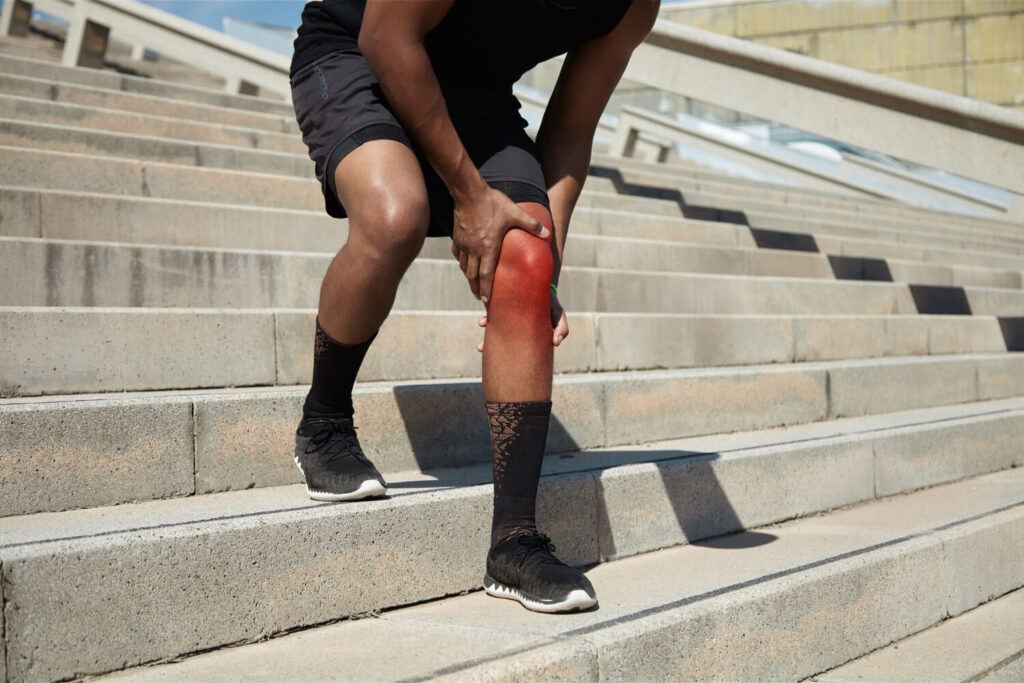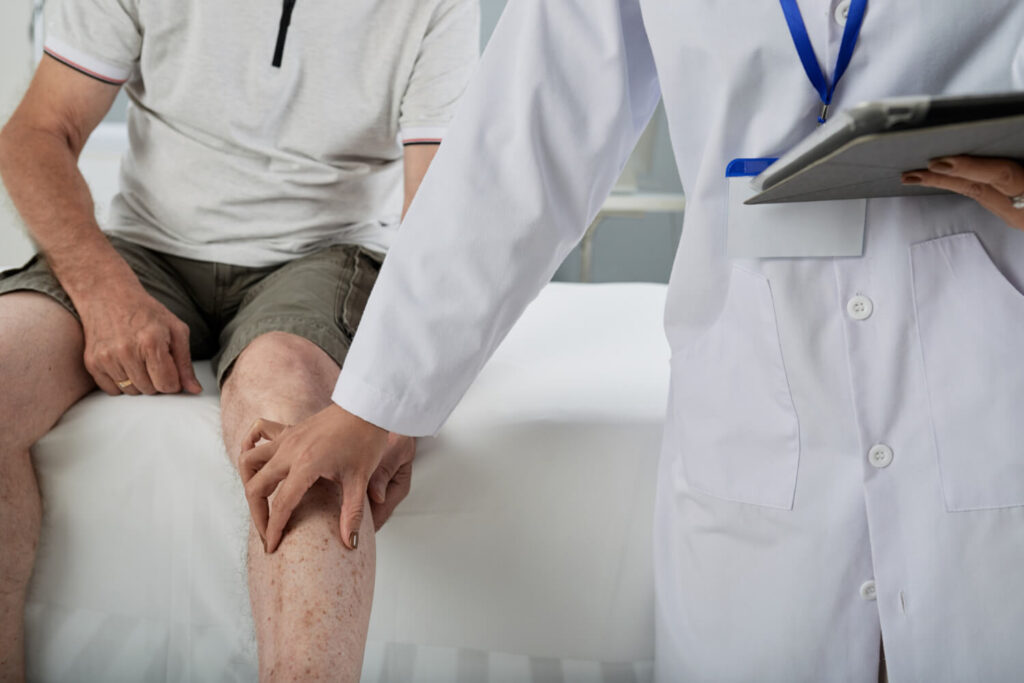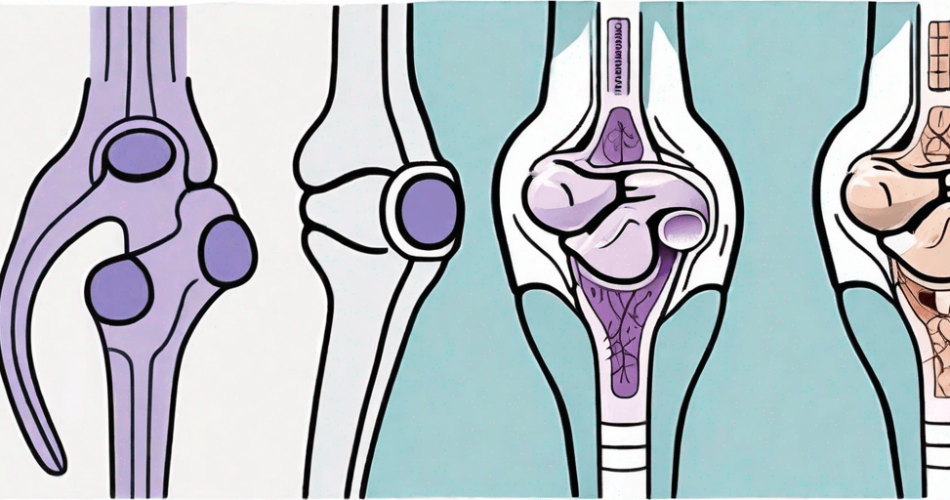Suffering from a chronic inflammatory disease such as rheumatoid arthritis knee can be challenging. In most cases, patients with the illness can experience pain, swelling, and stiffness in their joints. With such health status, it can result in limited physical activities, which can be a cause of frustration to patients.
In this article, we can help individuals with the condition to prioritize their health. We’ll be covering the effective options for a better management of the rheumatoid arthritis. Let’s begin!
What is Rheumatoid Arthritis in the Knee

Rheumatoid arthritis knee is a form of autoimmune arthritis, where the body’s immune system mistakenly attacks the synovium, the lining of the joints. This leads to inflammation, which can cause damage to the cartilage and bone surrounding the joint.
This complex disease can have a significant impact on a person’s quality of life. With the reduced mobility, patients can’t perform well, especially if it involves leg movement. Usually, the symptoms can vary in severity and may be worse in the morning or after periods of inactivity.
It is important to note that rheumatoid arthritis is a chronic condition, meaning it can last for a long time and may require ongoing treatment and management.
Symptoms of Rheumatoid Arthritis Knee
As mentioned, the symptoms of rheumatoid arthritis in the knee can vary from person to person. These symptoms may be present in one or both knees and can interfere with daily activities.
Here are some of the common symptoms:
- joint pain
- swelling
- stiffness
- warmth
- redness
- fatigue
- loss of appetite
It would be best for patients to analyze their current condition through recognizing these signs. These symptoms can help patients to be more aware of their health, which is crucial for progression prevention. That way, they can begin the next best step, which is visiting a health care expert for a consultation.
Rheumatoid Arthritis Knee Diagnosis

Diagnosing rheumatoid arthritis in the knee typically involves a combination of physical examinations, medical history review, and imaging tests. During a physical examination, a healthcare provider may assess the affected knee for signs of inflammation, such as swelling and tenderness. They may also ask about the individual’s medical history and any family history of autoimmune diseases.
In addition to the physical examination, imaging tests such as X-rays, ultrasound, or magnetic resonance imaging (MRI) may be used to assess the extent of joint damage and inflammation. Blood tests, such as the rheumatoid factor and anti-cyclic citrullinated peptide (anti-CCP) antibody test, can also help in confirming the diagnosis. These tests look for specific markers in the blood that are often elevated in individuals with rheumatoid arthritis.
Early diagnosis and treatment of rheumatoid arthritis are crucial in managing the condition effectively and preventing further joint damage. With advancements in medical research and treatment options, individuals with rheumatoid arthritis can lead fulfilling lives and minimize the impact of the disease on their daily activities.
Every aspect of the condition can be managed as long as early intervention is put into place. Ensure quality care services will be available for you by choosing the suitable hospital for your needs. One best way to check that is through visiting the health care provider websites for their available technologies and services.
Non-Surgical Treatment Options for Rheumatoid Arthritis in the Knee
Rheumatoid arthritis is a chronic autoimmune disease that primarily affects the joints, making it difficult for individuals to carry out their daily activities. There are several non-surgical treatment options available to manage the symptoms. Thus, improving the quality of life for those with this condition.
Medications and Drug Therapies
Medications are often prescribed to manage the symptoms of rheumatoid arthritis in the knee and slow down the progression of the disease. Nonsteroidal anti-inflammatory drugs (NSAIDs), such as ibuprofen or naproxen, can help to reduce pain and inflammation. These medications work by blocking the production of certain chemicals in the body that contribute to inflammation.
Disease-modifying antirheumatic drugs (DMARDs), such as methotrexate or sulfasalazine, are commonly used to suppress the immune system and reduce joint damage. These medications can help to slow down the progression of rheumatoid arthritis and prevent further destruction of the knee joint.
In addition to NSAIDs and DMARDs, biologic response modifiers, such as tumor necrosis factor inhibitors or interleukin-6 inhibitors, may be prescribed for individuals with more severe rheumatoid arthritis symptoms. These medications work by targeting specific molecules involved in the inflammatory response, providing targeted relief for those who do not respond well to other treatments.
The list of medications may still vary depending on the full examination and diagnosis of the health expert. That why it is best to verify the condition with a doctor to receive the tailored treatment plan for the patient.
Physical Therapy and Exercise Regimens
Physical therapy and exercise can play a crucial role in managing rheumatoid arthritis in the knee. A physical therapist can design an exercise program tailored to the individual’s needs, focusing on improving joint flexibility, muscle strength, and overall function.
Meanwhile, exercises that are gentle on the knees, such as swimming or cycling, can help to strengthen the muscles surrounding the knee joint without putting excess stress on the joint itself. These low-impact activities can improve joint stability and reduce pain during movement.
Additionally, range-of-motion exercises can also help to maintain flexibility in the knee joint. These exercises involve moving the knee joint through its full range of motion, helping to prevent stiffness and improve overall joint function.
Lifestyle Changes and Home Remedies
There are several lifestyle changes and home remedies that can help manage the symptoms of rheumatoid arthritis in the knee. Maintaining a healthy weight can alleviate pressure on the knee joint, reducing pain and inflammation. Excess weight puts additional stress on the joints, exacerbating the symptoms of rheumatoid arthritis. Patients can check with their doctor if an intervention with a dietitian is needed.
Applying heat or cold packs to the affected knee can provide temporary relief from pain and stiffness. Heat therapy helps to relax the muscles and increase blood flow to the affected area, while cold therapy can numb the area and reduce inflammation.
It is also important to listen to your body and pace yourself. Resting when needed and avoiding activities that worsen the symptoms can help prevent further damage to the knee joint. Overexertion can lead to increased pain and inflammation, so it is important to find a balance between staying active and giving your body the rest it needs.
Surgical Treatment Options for Rheumatoid Arthritis in the Knee

Arthroscopy: A Minimally Invasive Procedure
Arthroscopy is a minimally invasive surgical procedure that can be used to diagnose and treat rheumatoid arthritis in the knee. During an arthroscopy, a small camera is inserted into the knee joint through a small incision. This allows the surgeon to visualize the joint, remove damaged tissue, and repair any areas of damage.
It is typically performed as an outpatient procedure and requires less recovery time compared to traditional open surgery. It can be an effective treatment option for individuals with mild to moderate rheumatoid arthritis in the knee.
Joint Replacement Surgery
For individuals with advanced rheumatoid arthritis in the knee, joint replacement surgery may be necessary. During this procedure, the damaged parts of the knee joint are replaced with artificial components made of metal and plastic. Joint replacement surgery can help to alleviate pain, improve mobility, and enhance the overall quality of life.
Before undergoing joint replacement surgery, patients will typically undergo a series of pre-operative tests and evaluations to ensure they are healthy enough for the procedure. This may include blood tests, X-rays, and consultations with other healthcare professionals.
It is important to note that joint replacement surgery is a major procedure and requires a period of rehabilitation and recovery. The decision to undergo joint replacement surgery should be carefully considered in consultation with a healthcare professional.
Pros and Cons of Surgical Treatments
While surgical treatments such as arthroscopy and joint replacement surgery can provide significant benefits for individuals with rheumatoid arthritis in the knee, it is important to weigh the pros and cons before making a decision.
Pros of surgical treatments include relief from pain, improvement in joint function, and increased mobility. However, there are also risks associated with surgery, such as infection, blood clots, and complications related to anesthesia. The recovery process can be lengthy, and rehabilitation is often required to regain strength and range of motion in the knee joint.
It is also important to consider non-surgical treatment options, such as medication, physical therapy, and lifestyle modifications, before opting for surgery. These non-surgical approaches may be effective in managing symptoms and improving quality of life for some individuals with rheumatoid arthritis in the knee.
Ultimately, the decision to undergo surgical treatment for rheumatoid arthritis in the knee should be based on a thorough evaluation of the individual’s condition, preferences, and goals. A healthcare professional can provide guidance and help determine the most appropriate treatment approach.
Coping Strategies for Living with Rheumatoid Arthritis in the Knee

Pain Management Techniques
Living with rheumatoid arthritis in the knee can be challenging, but there are several pain management techniques that can help improve quality of life. Taking prescribed medications as directed can help reduce pain and inflammation. Applying heat or cold packs to the knee can provide temporary relief from discomfort.
In addition to medication and topical remedies, relaxation techniques, such as deep breathing exercises or meditation, can help to manage stress and decrease pain perception. Physical therapy and gentle stretching exercises can also help to alleviate muscle tension and improve joint flexibility.
Emotional and Psychological Support
Dealing with a chronic condition like rheumatoid arthritis can take a toll on a person’s emotional well-being. Seeking emotional and psychological support is essential for managing the challenges associated with the disease.
Joining support groups or talking to a therapist can provide a safe space to discuss feelings and concerns related to rheumatoid arthritis. Learning coping strategies, such as mindfulness or positive self-talk, can also play a significant role in managing the emotional impact of the condition.
Navigating Daily Life with Rheumatoid Arthritis
Living with rheumatoid arthritis in the knee may require adjustments to daily activities to prevent further damage and manage symptoms. It is important to listen to your body and pace yourself. Rest when needed and avoid activities that worsen the symptoms.
Using assistive devices, such as knee braces or walking aids, can provide additional support and stability for the knee. Ergonomic modifications, such as using joint-friendly tools or adaptive equipment, can make daily tasks easier and reduce strain on the joints.
Conclusion
Managing rheumatoid arthritis knee requires a comprehensive approach that includes both non-surgical and surgical treatment options, as well as coping strategies for daily life. Learning how to recognize the symptoms and doing an immediate intervention for better management can help patients to improve their mobility further.
With the right combination of the introduced intervention steps and the treatment plans that the doctor will provide, it ensures a better health condition. Take a leap and be the steward for your health against rheumatoid arthritis. Book an online consultation with a rheumatologist to begin the early intervention!



